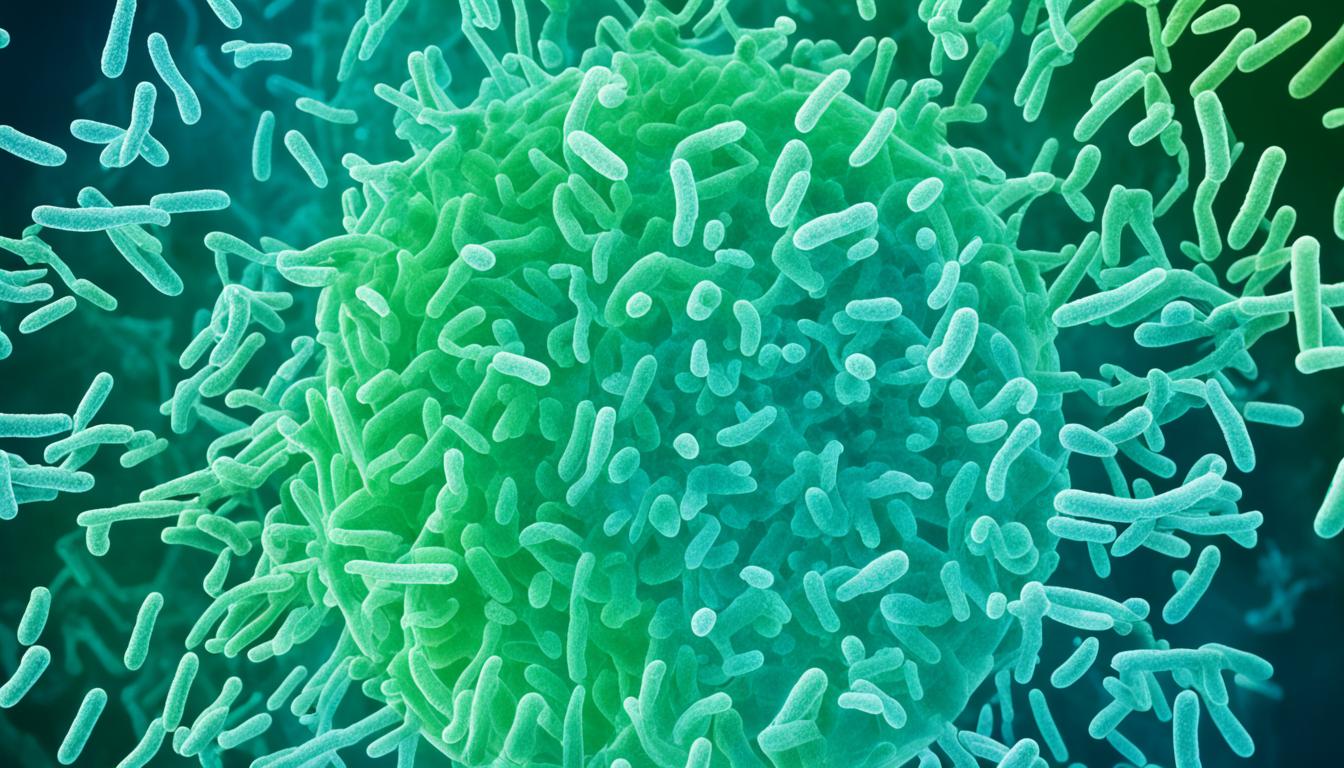Listeriosis is a serious illness caused by Listeria monocytogenes. This bacteria is often found in animals, soil, water, and contaminated refrigerated food. Healthy adults might get flu-like symptoms or an upset stomach. But, pregnant women, older people, and those with weak immune systems face a higher risk of severe illness. This includes stillbirth or miscarriage if it spreads from a mother to her baby during pregnancy.
In 2019, England and Wales saw 142 cases of L. monocytogenes. A significant portion, 17.6%, was linked to pregnancy. Listeriosis outbreaks have been tied to soft cheeses and meat-based pâté. This highlights the crucial role of safe food handling in disease prevention.
To diagnose listeriosis, doctors use culture techniques. Treating it often involves antibiotics. In extreme cases, like in very sick adults, it can lead to serious conditions like meningitis or septicemia. Health professionals must report listeriosis cases. This helps to stop the spread of the infection.
Key Takeaways
- Listeriosis is caused by Listeria monocytogenes, a bacteria found in animals, soil, water, and contaminated refrigerated food.
- Pregnant women, the elderly, and individuals with weakened immune systems are more susceptible to severe listeriosis.
- Listeriosis can lead to severe illness, miscarriage, stillbirth, and long-term neurological damage.
- Practicing food safety and avoiding certain foods is crucial in reducing the risk of listeriosis.
- Getting a swift diagnosis and starting antibiotic treatment helps manage listeriosis and avoid complications.
Risk Factors and Transmission of Listeriosis
It’s important to understand how listeriosis spreads to prevent this serious illness. Some groups, like pregnant women, the elderly, and those with weak immune systems are at higher risk. Unborn babies and newborns can face severe problems from listeriosis.
Transmission can happen from the mother to her baby during pregnancy. It can cause severe health issues or the baby to not survive. Also, touching animals that carry Listeria can spread the illness.
Eating contaminated food is another way to get Listeria. Foods like soft cheeses and pâté can cause outbreaks. Remember, Listeria thrives in cold environments, so refrigerated and undercooked foods can also be risky.
Lesteria can be in the bowel and get into the water and soil. This means good hygiene and clean water are crucial to stay safe.
Knowing the risks helps us protect ourselves from listeriosis. Cooking food well, avoiding certain foods, and keeping hands clean are vital steps. These actions greatly lower the chance of getting sick.
Symptoms, Diagnosis, and Treatment of Listeriosis
Listeriosis is a bacterial infection caused by Listeria monocytogenes. It can cause flu-like symptoms or severe issues, based on the person’s immune system.
Symptoms of Listeriosis
The signs of listeriosis can change, but usual symptoms include:
- Fever: Listeria can make you have a high temperature.
- Myalgia: You might feel muscle pain.
- Headache: Headaches that won’t go away are common.
- Sore throat: Your throat might hurt and be swollen.
- Diarrhea: You may have loose or watery stools.
- Vomiting: Feeling sick and throwing up can happen.
Listeriosis might not show symptoms in healthy people or could lead to severe illness. It could cause meningitis, pneumonia, or septicemia in tough cases.
Diagnosis of Listeriosis
Doctors use standard tests to find listeriosis. They check blood, urine, and stool for the bacteria.
It’s key to know that blood tests are not good for finding listeriosis. So, doctors usually don’t use them.
Treatment of Listeriosis
Antibiotics like amoxicillin or ampicillin are often used to treat listeriosis. The treatment length depends on how bad the infection is and the patient’s health.
People with weak immune systems might need antibiotics for longer. This can make sure the infection is fully treated.
For serious cases like meningitis, antibiotics through a vein are given. This might last 21 days.
Some patients might get two types of antibiotics. This combo can make treatment more effective.
Further checks, like scans and a lumbar puncture, might be done. This is to see how badly listeriosis has affected the body.
Knowing the signs, how it is found, and treated is very important. It helps catch the infection early and manage it well. Getting the right medical care is crucial to avoid problems and help recovery.
Conclusion
Listeriosis is a serious illness caused by Listeria monocytogenes. This germ is found in the environment and some foods. It’s especially risky for pregnant women, the elderly, and people with weak immune systems. Symptoms can be severe and lead to miscarriage, stillbirth, or serious brain issues.
Preventing listeriosis is crucial. Avoiding certain foods and following good food safety practices can help. Make sure to cook and reheat food well. Early diagnosis and antibiotic treatment can also stop the disease from getting worse.
Health professionals are on the front line against listeriosis. They work to spot and report cases to keep the public safe. New research and technology, like whole genome sequencing, help us learn more about the disease. This makes preventing it even better.

